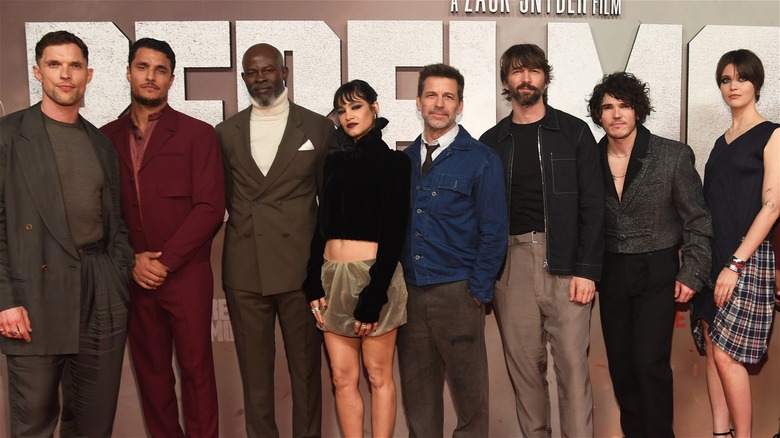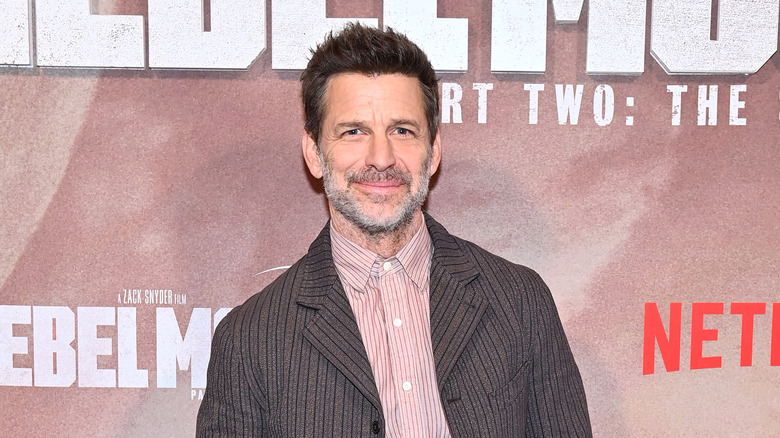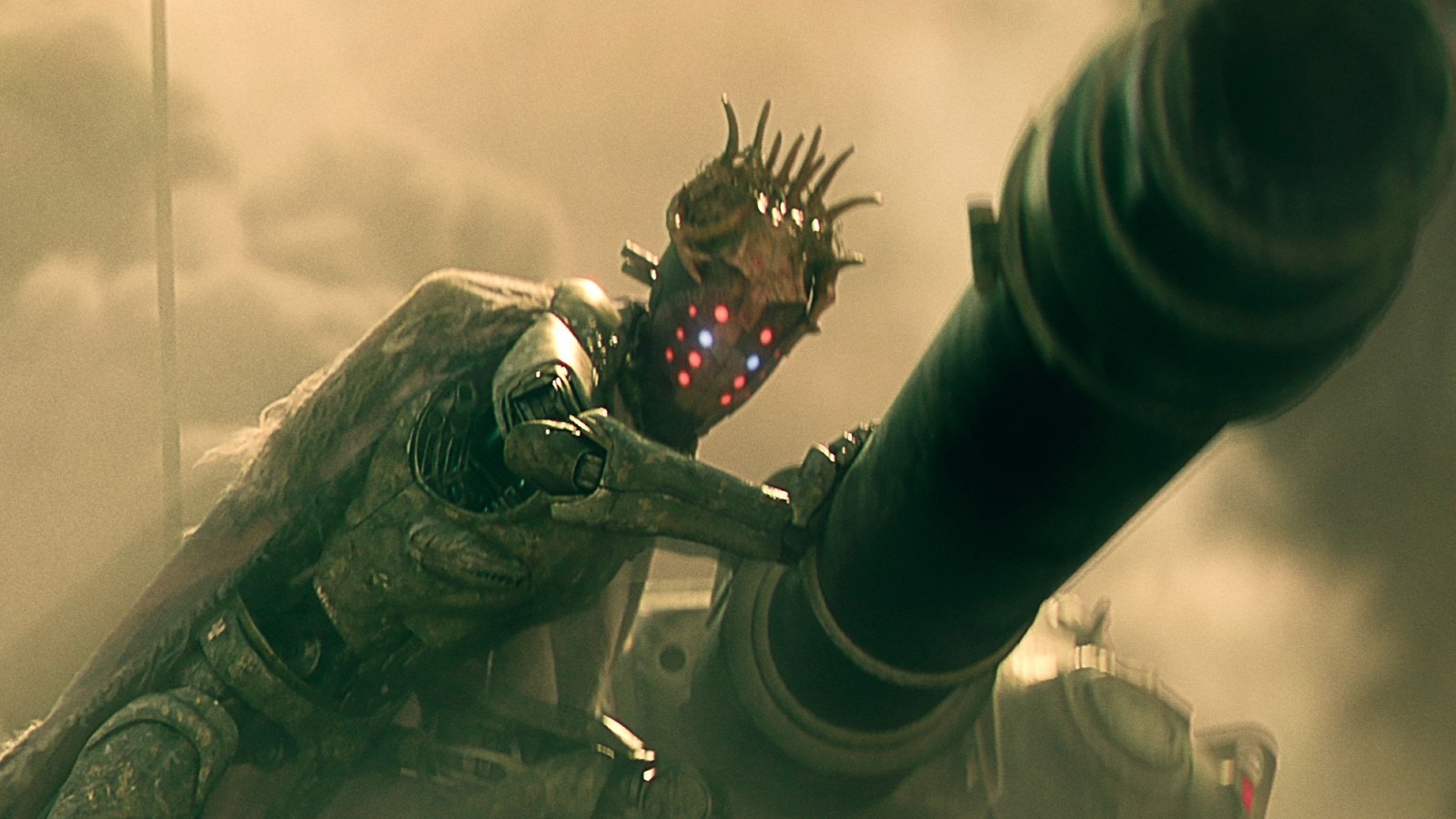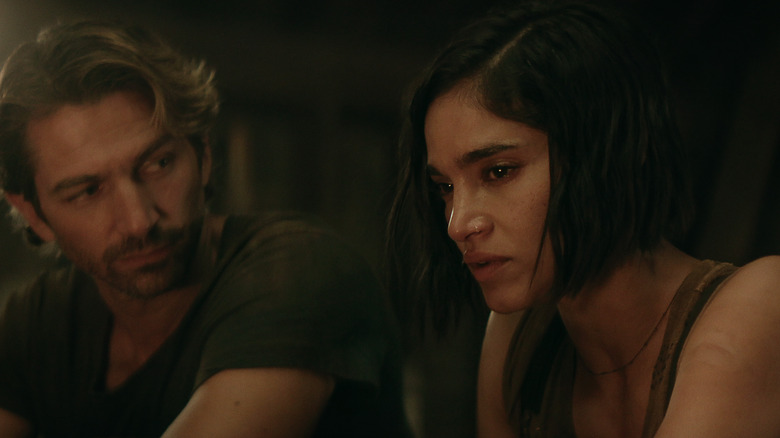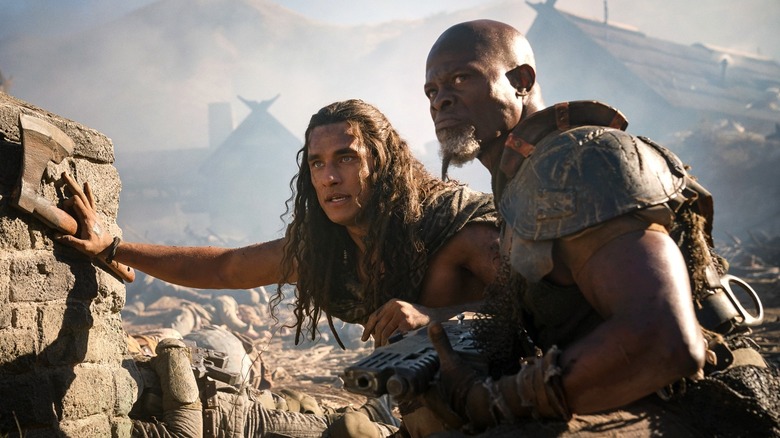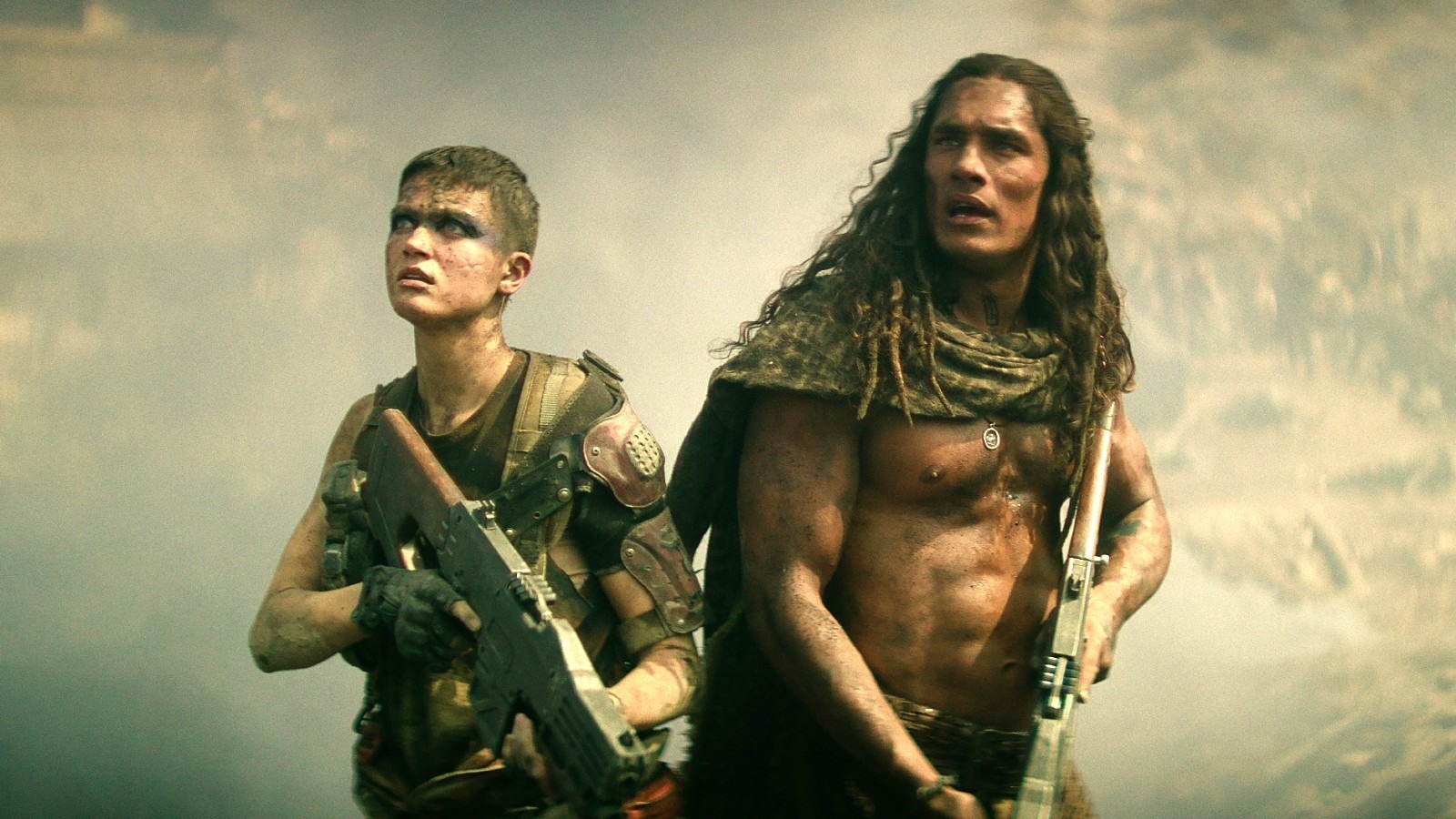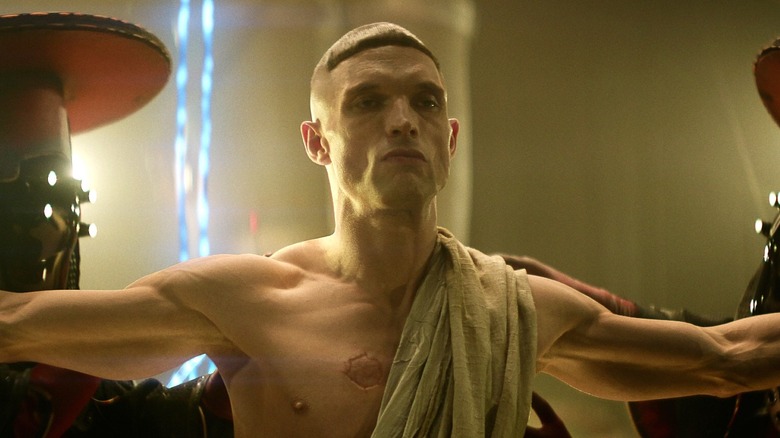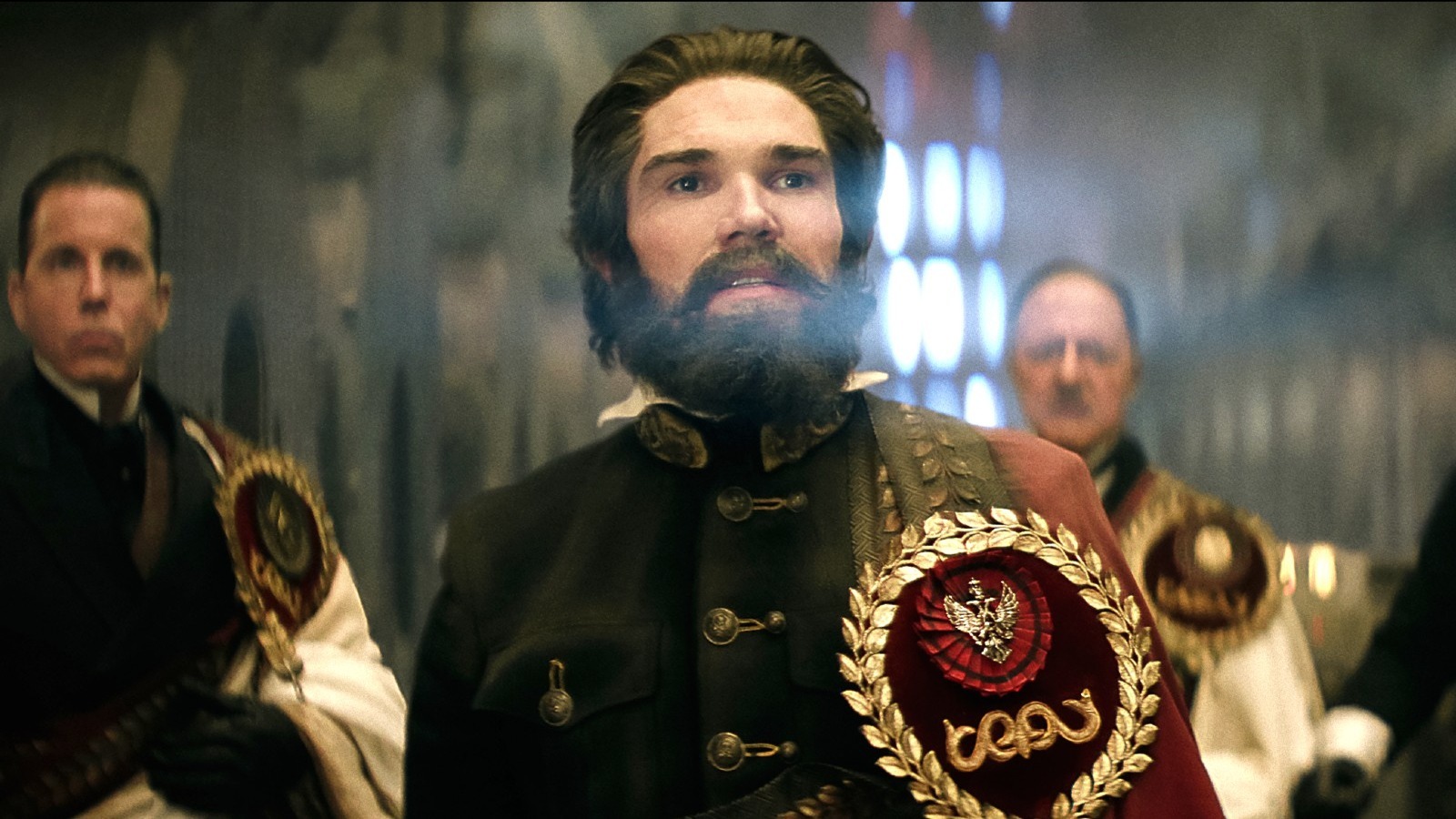Zack Snyder & The Rebel Moon 2 Cast Reveal How Scargiver Changes Things - Including Critics' Minds (Exclusive Interview)
Forget about the recent solar eclipse: Director Zack Snyder has viewers completely covered with the hotly-anticipated second chapter of his "Rebel Moon" saga, "Rebel Moon – Part Two: The Scargiver." The first chapter — "Rebel Moon – Part One: A Child of Fire" — dazzled moviegoers with a limited run in theaters in December of 2023 before making its streaming debut on Netflix. "The Scargiver" debuts on Netflix on Friday, April 19.
"A Child of Fire" introduces Kora (Sofia Boutella), a new resident on the moon of Veldt, which is located in the far reaches of the universe. Thinking she's finally found a life of peace, Kora's past as a product of the evil Motherworld comes back to haunt her when a menacing dictator from the planet, Admiral Noble (Ed Skrein), lands on Veldt and begins to brutalize its inhabitants.
Thinking that she defeated Noble once and for all by the end of "A Child of Fire," the admiral emerges under the rule of the tyrannical Regent Balisarius (Fra Fee) in "The Scargiver" with a resolve to destroy Kora and her band of rebels — consisting of Gunnar (Michiel Huisman), General Titus (Djimon Hounsou), Tarak (Staz Nair), Nemesis (Doona Bae), and Milius (Elise Duffy) — and seize Veldt by force.
In an exclusive interview with Looper, Snyder and the core cast members of "The Scargiver" discuss some of the key aspects of the "Star Wars"-inspired tale and comment on the critical response to "A Child of Fire," which they believe may have been a bit premature.
Snyder thinks critics' reactions to A Child of Fire will change with The Scargiver
I know you don't make movies for critics, and I don't think any filmmaker does, but do you think when critics and viewers look at "Rebel Moon – Part Two: The Scargiver," are they going to look at it as a whole experience because "A Child of Fire" was only one part? It's a much fuller story when you put them together.
Yeah, well, I mean I think that's sort of the fun of the two movies now. When you [see it on] April 19, you'll have both movies available and really you'll be able to see them in their totality. And I think it'll be an interesting sort of experience now to see the whole story in a single stroke. I think there has to be, in some way, some sort of reevaluating of how you feel about it based on movie one just being the first. Basically, you read the first chapter of the book [are] you like, "Okay, well this is what I think of the book?" So it's hard to say.
One thing I didn't touch on the first time around that we talked about was how much I love the android, Jimmy. He's so pivotal to the overall story, so would he be considered the C-3PO of this "Star Wars"-like story with "Rebel Moon" since the film is told through his point of view?
I don't know that he is, because he was written as literally a quest knight that had a religious crisis during the Crusades. That was basically the thesis with him. And so he's a badass, in the end, he's a reluctant gunfighter. It's just getting him to pick up the guns again that's the challenge ... But we need him to do it. What is it going to take for him to do it?
It'll be interesting for you when you see the director's cuts because there's so much more Jimmy. It's probably another half an hour of Jimmy in the director's cuts, which will be fun for you probably if you're a fan of his.
Oh, I am a big fan of Jimmy. And to add to that, how thrilling was it to work with Anthony Hopkins? I mean, how did you arrive at getting him for the voice?
Thanks to [producer] Scott Stuber in some ways, because Scott was like, "Why don't we get Tony to play Jimmy?" And I was like, "Oh, why don't we get? Yeah, you tell me why not? Because if we can get him, then of course. Anthony Hopkins? Don't just say that you can do it." Yeah. So we talked to him and I had a couple of conversations with him on the phone about who Jimmy was, and he was like, "Yeah, that sounds fun" and I was like, "Okay. Wow." And yeah, and he's been a joy every time I go. And even I photographed him for my photo book, and he was really ... Just an incredible icon. So fun.
Speaking of voices, I don't know how much can you tell me about "Army of the Dead: Lost Vegas" at this point. I loved both "Army of the Dead" and "Army of Thieves," and I can't tell you how badly I want to see this series.
Yeah, I do, too. I keep telling Netflix that we need to go ahead and do some more and they keep encouraging me to make more "Rebel Moon" movies. But I feel like this "Army" universe is really very rich and fun, and zombies never go out of style so it just feels like a no-brainer to me.
Boutella and Huisman say the goal of both Rebel Moon movies is to entertain
Sofia and Michiel, I loved the first film and was taken aback by the critical reception of it. Do you think ultimately once when critics see "Part Two" they're going to realize, "We were way too quick to judge that first film" because you need "Part Two" to enhance that overall experience?
Michiel Huisman: Yeah, I agree. I hope so.
Sofia Boutella: I hope so too. This movie is meant to be entertaining and fun, and we truly had so much joy being on set and making it. And to see, basically, the audience's response was very positive to us because it encouraged us. And hopefully, "[Part] Two" will have the same impact, if not more on the audience, and that's who we make movies for. And so we were glad to see that it had such a positive impact.
Not lost in the film — as exciting as it is with the action — there is also some emotional impact. We get it with that scene where you're all presented tapestries for your courage, there is a scene where you're talking about your tragic backstories, and another scene that I'm not going to mention that's very emotional in the third act. That's what makes this film great, is that it is just as emotionally engaging as it is as a thrill ride. Would you both agree?
Boutella: Yeah, absolutely.
Huisman: Totally. And "Part Two" is action-packed, but at the same time, it leaves a lot of room for, like you said, back story and some heart to the film.
What about you, Sofia? How do you feel about it?
Boutella: I feel that people will get to experience what unifies us and what inspires us, and is leading us to fight against such a negative powerful force. But it's also, you get to go in-depth into everybody's past stories, which are all heartfelt and emotionally tormented backstories that were all heard by the Motherworld, which brings us all together. And it also gives us the motivation yet to fight against them and also what brings us together, basically. And so seeing this relationship come to life and getting to be a bit more intimate with everybody is exciting. And hopefully, the audience will get a chance to understand all the characters.
There's a great scene in "Part Two" that hearkens to Zack rooting the idea for this saga in the "Star Wars" universe. The story is really like "Star Wars" in that it's about hope. And Michiel, in that emotional meeting of the core group where you all share your tragic backstories, your character Gunnar says, "Thank you for giving us hope." Is that why you believe the movie has been so resonant with audiences?
Huisman: Yeah, it's a sci-fi idea. No, but I agree with you. That's one of the underlying themes, or maybe a message in these two movies, a message of hope and of community, and of coming together and standing for something against all odds.
Hounsou, Nair & Duffy were moved by the emotional narrative
Djimon, Staz, and Elise, I think what's great about these films, especially this one, is that you all have some very emotional scenes. Are those scenes generally moving when you're filming them? It certainly seems like the emotion there is raw.
Djimon Hounsou: Absolutely. This was a vivid sort of resemblance, certainly in terms of story. It was amazing to be able to organically connect to it. And the story is what drives all of us. And so, the fact that the narrative of Rebel Moon mimics so much our reality today speaks volumes for me — and certainly, that was my connection to the story.
Staz and Elise, what would you say?
Elise Duffy: Yeah. I'm so happy that you got that sense because that's absolutely what it was like shooting those scenes. I mean, so honest and personal, and the levity that was there as well. I think those were some of my favorite scenes to shoot at night when we were all together.
Hounsou: The scene for all of us to be able to really connect. And I think that night we're all connected on a level that was quite special, and completely outside of the months we've been filming. That was the moment of unity. Yes, indeed. Right after that, we went into battle.
Staz Nair: I think when you are having to, or lucky enough to perform these kinds of more dramatic, honest scenes, not with everyone, but at least with myself and I know a lot of us, you are using an opportunity to channel your own personal experiences through the guise of another story, and finding the intersections between yourself and the character.
When that happens, I really believe, you are comfortable enough to do it honestly and share it with people as opposed to try and share it, or look like you are sharing it. There's a catharsis to that because I'm telling my story without telling my story. And there's a safety in that as well because it's vulnerable; it's honest. You're not saying, "This is exactly what Staz did." You're sharing your story through Tarak's story or Djimon's is through Titus' story.
When you get to do that and you get to do it with actors as great and as wonderful, and people as nice as our cast, it's a really wonderful thing. And I'm glad like you said, I'm glad it translated because it very much was that. And the back stories, they're heavy to access sometimes as well because they often live, as Djimon said, in a world that's very similar to our own personal experiences.
I'm trying not to get any of you busted, but from the production design to the costumes, there's so much beauty in this film from the craftspeople. Were you allowed, or did you sneak any props? And if so, what?
Nair: I stole a feather from the Bennus [which is a large griffin]. I asked, though, but I want to sound cooler and say I stole it when I didn't. Also, I was lucky enough that Zack [Snyder] very kindly used a pendant that my wife gave me as a gift before I started the job because we knew I was flying a Bennus. So, she got a griffin pendant, and Zack very kindly allowed it to become the family crest for my people. So, I get to have that with me all the time. But it was originally a gift from my wife and then became the emblem of the Decimus royal family.
Skrein and Fee are happy to see the story develop with The Scargiver
Ed and Fra, I'm sure you were both disappointed with the critical reaction to "Rebel Moon – Part One." I thought it was way too harsh, but what people I think forgot about that first film is that there is a "Part Two" coming, and you had to have been whispering to your friends: "Just you wait because this is going to turn out to be one giant, spectacular piece of work."
Ed Skrein: I love the process of choosing a project. You exist in this realm of fantasy that you objectively look at, the filmmaker, the piece, the producers, the studio, and the budget. You look at things and you say, "What is the possibility of this? Conceptually, what is the possibility of this?" And you can't help but envision it at its greatest and you have a clear vision for it. How interesting that all of us are doing that independently, so the story is going to be different. So, then we go in and we create these pieces and we try our best all the way through to the end.
But the second I finish, it's over. After that, it's an objective study of how things were experienced. For me, to be binary in terms of results-based — in terms of box office numbers — and critical acclaim by the same token, Rudyard Kipling's "If" says, "Triumph and disaster are two imposters just the same." So, it is really interesting in the truest sense of the word for me when I see results. I often remind younger cast members of that when they ask me about good and bad reviews and such, and I tell people to not get too high when things are good and definitely don't get too low when things aren't so good.
This is a four-part piece, so it'd be interesting once all four pieces are out to analyze, objectively and unemotionally, and see it from there. But this is a relay race. We run our race, we pass the baton onto you, you guys, you run, the critics and all of this and ultimately it's your leg now. It's your race. Everything you say is the truth and is the rightful way.
Fra, I've mentioned to your castmates that "Rebel Moon" is more than a movie. It's an experience. You and Ed have done your fair share of work over the years, but how would you rank working with Zack Snyder? I mean, I don't look at his films as films. Again, they're experiences. The guy transcends the boundaries of cinema. Would you agree with that?
Fra Fee: Yeah, I agree with you. He's a masterful storyteller. It's truly, truly inspiring to watch him in his playground with all of the tools at his disposal. His imagination is, it's infinite, truly. And when speaking about the character, in which, of course for these two movies, Balisarius has peppered throughout. We see him as a young man in "Part One" and an older man in "Part Two." There's a whole fully-fledged life that happens in between those moments and before as well as in his upbringing. Zack was able to fill in those blanks with such detail. I'm not sure I would've had the gift of that from other filmmakers. I would work again with him in a heartbeat. I really hope we get to explore this character in more detail in the future. Yeah, it was just class.
"Rebel Moon – Part Two: The Scargiver" debuts on April 19 on Netflix. This interview was edited for length and clarity.
